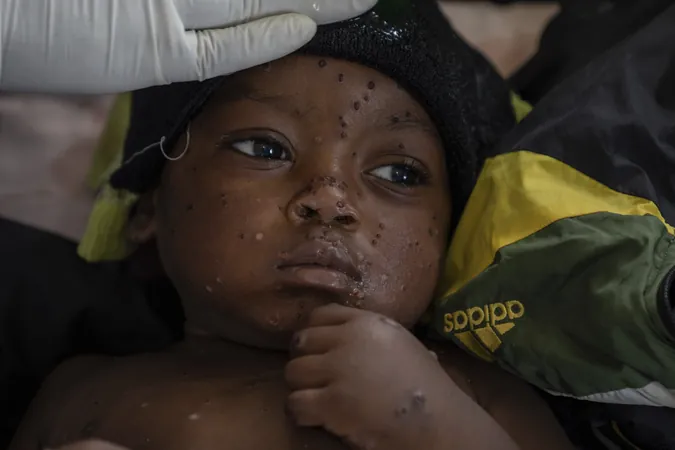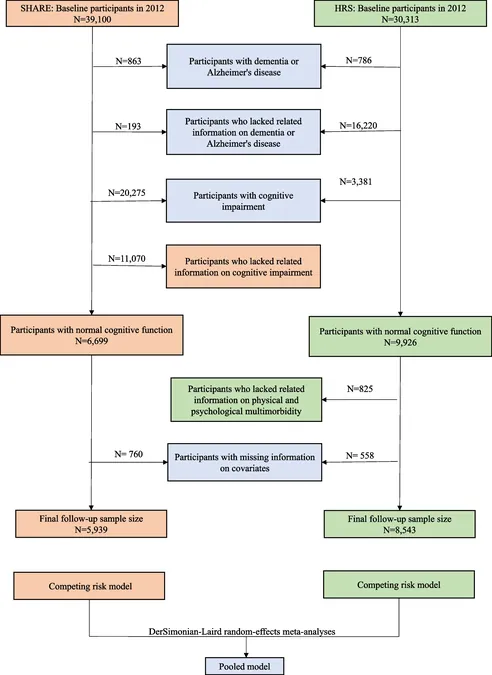
Tragedy in Congo: A Gold Mining Town Faces a Mpox Crisis While Families Suffer
2024-09-19
Tragedy in Congo: A Gold Mining Town Faces a Mpox Crisis While Families Suffer
In a heart-wrenching scene in eastern Congo, Divine Wisoba finds herself engulfed in sorrow as she tends to her daughter's grave. Just one month old, baby Maombi Katengey succumbed to mpox in August. Wisoba, now 21, couldn't bring herself to attend the funeral, and during her first visit to the cemetery, she wept bitterly for the child she lost. She recalls the initial joy of welcoming her daughter, which soon turned into an overwhelming heartbreak.
Maombi is just one of the thousands affected by a dire outbreak of mpox emanating from South Kivu province. As officials struggle to contain this public health crisis, it has been estimated that over 6,000 individuals have contracted the disease in the region. The World Health Organization (WHO) has officially categorized the outbreak as a global health emergency. A new variant of the mpox virus is being transmitted primarily through close physical contact, including sexual interactions—leading to increased alarm among health experts regarding its spread.
Mpox is known to cause mild ailments such as fever and muscle aches but can escalate to severe symptoms, resulting in painful blisters on various parts of the body, including the face, hands, and genitals. Historically, the disease has remained undetected for years in Africa, only to explode in 2022 when it reached over 70 countries worldwide. While the last outbreak predominantly impacted gay and bisexual men globally, mpox has a long history of affecting children in Africa significantly, and recent data indicates a worrying uptick in cases among vulnerable populations, including kids and pregnant women.
Focusing on the epicenter of this outbreak, Kamituga—a remote gold mining town bustling with around 300,000 residents—has emerged as a hotbed for infections. This town is a melting pot for miners, sex workers, and traders, making it a prime location for the disease’s transmission. Alarmingly, nearly 1,000 people in Kamituga have been infected since the outbreak began last year, with eight fatalities, half of whom were young children.
Despite the WHO's optimism that mpox outbreaks could be curtailed within six months with effective government action, the reality on the ground in Kamituga tells a different story. Current data shows a staggering rise in cases, with daily reports revealing five new cases at the general hospital alone—a facility often at capacity. South Kivu has witnessed an escalation of new suspected cases from around twelve per week in January to approximately 600 in August. Health officials suspect this figure may be a gross underestimate, due to limited access to rural areas and the transient nature of Kamituga's population.
A profound lack of knowledge about mpox remains a critical barrier in the fight against this outbreak. Wisoba herself was unaware of her own mpox infection until it led to her daughter’s tragic death. She exhibited painful genital lesions, mistaking them for a common STD, and sought medication without understanding the true nature of her condition.
Community leaders like Kasindi Mwenyelwata have stepped up, going door-to-door to educate residents about mpox symptoms, but they are hampered by a lack of resources. Without visual aids like educational posters, communicating the virus's dangers effectively is incredibly challenging.
Additional obstacles abound for aid organizations such as ALIMA, which is struggling to maintain funding for vital programs designed to inform and protect the population of over 150,000 in Kamituga. If current support dwindles and mpox continues its spread, experts warn that the local economy could suffer deeply, as both residents and visitors may abandon the region amid fears of contagion.
One fundamental need highlighted by experts is the urgent requirement for vaccines, even if they are initially restricted to adults. Although Kamituga has been designated a priority location for vaccine distribution, none have yet arrived. The road conditions leading into the town complicate logistics, particularly during the rainy season. Among Congo’s ambitious response measures is a draft budget exceeding $190 million aimed at combating mpox, intending to secure three million vaccine doses, yet only 250,000 doses have reached the country thus far.
As families like Wisoba's continue to suffer, the need for vaccinations and public education grows increasingly urgent. With many individuals recovering from mpox only to risk reinfection, the community remains in peril. Local health professionals express concern over a new, more transmissible variant of the virus that is significantly less understood.
Reports indicate rising cases of miscarriage and stillbirth among pregnant women infected with mpox, casting a shadow of uncertainty over many families' futures. Alice Neema, a mother who lost her baby to miscarriage after contracting the virus, illustrates the desperate reality many face.
The fear surrounding mpox has left the community reeling, with residents like Diego Nyago witnessing the alarming reality as their children develop symptoms. “I didn’t believe children could catch this disease," he said, as he tended to his son, who fortunately received timely medical attention.
With the spread of mpox, it is imperative that both the local and international communities mobilize resources to combat this growing health crisis. In a world where knowledge is power, the importance of informing and protecting vulnerable populations cannot be overstated.
As this story continues to unfold, the local hope persists—help is needed now more than ever to alleviate the devastating effects of mpox in this corner of Congo.


 Brasil (PT)
Brasil (PT)
 Canada (EN)
Canada (EN)
 Chile (ES)
Chile (ES)
 España (ES)
España (ES)
 France (FR)
France (FR)
 Hong Kong (EN)
Hong Kong (EN)
 Italia (IT)
Italia (IT)
 日本 (JA)
日本 (JA)
 Magyarország (HU)
Magyarország (HU)
 Norge (NO)
Norge (NO)
 Polska (PL)
Polska (PL)
 Schweiz (DE)
Schweiz (DE)
 Singapore (EN)
Singapore (EN)
 Sverige (SV)
Sverige (SV)
 Suomi (FI)
Suomi (FI)
 Türkiye (TR)
Türkiye (TR)